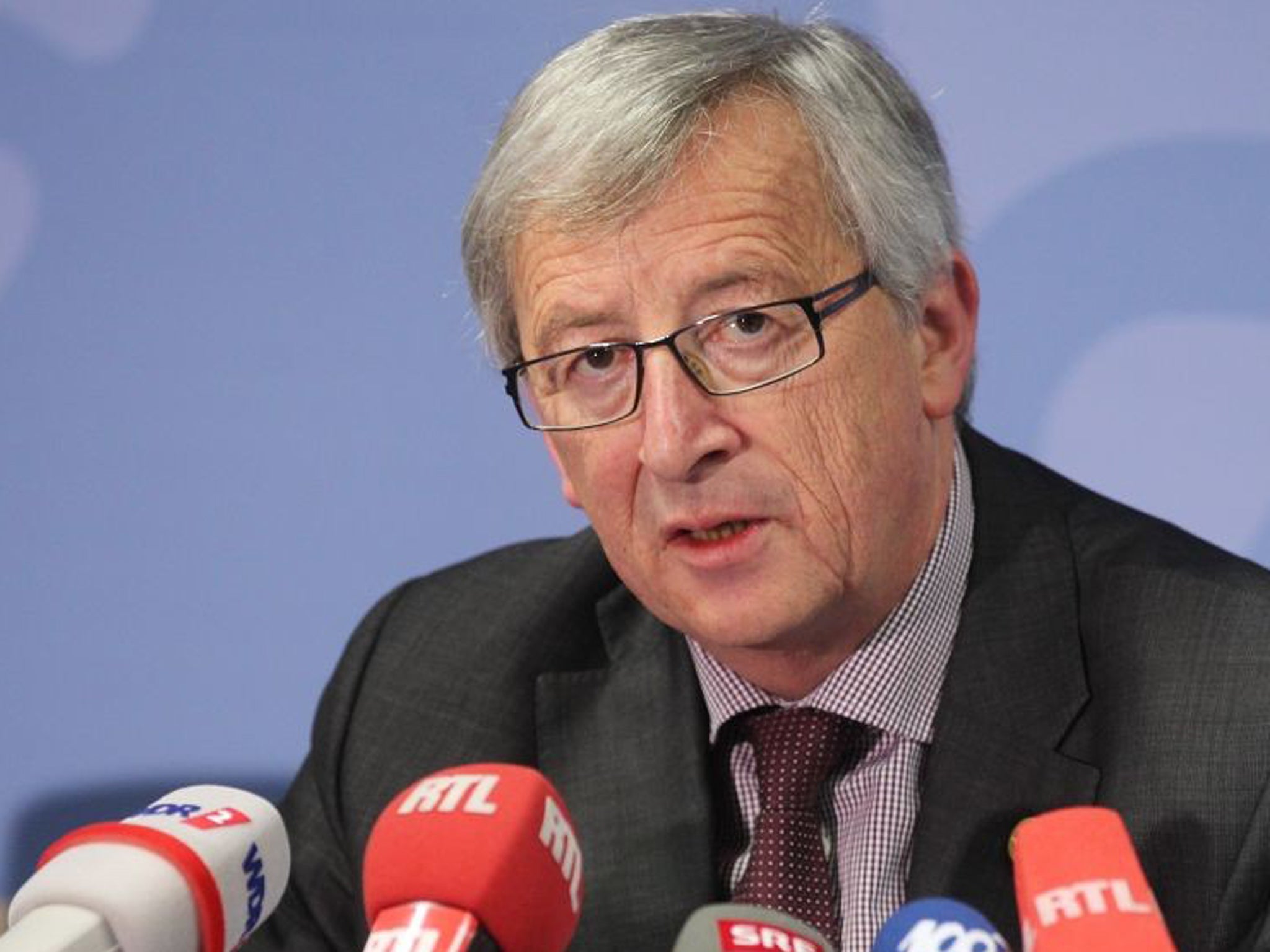Luxembourg PM Jean-Claude Juncker calls snap elections amid secret service scandal – risking longest held office for any EU leader
Prime Minister bows to pressure from junior coalition partner but 'very much' hopes party will back him to seek re-election

Your support helps us to tell the story
From reproductive rights to climate change to Big Tech, The Independent is on the ground when the story is developing. Whether it's investigating the financials of Elon Musk's pro-Trump PAC or producing our latest documentary, 'The A Word', which shines a light on the American women fighting for reproductive rights, we know how important it is to parse out the facts from the messaging.
At such a critical moment in US history, we need reporters on the ground. Your donation allows us to keep sending journalists to speak to both sides of the story.
The Independent is trusted by Americans across the entire political spectrum. And unlike many other quality news outlets, we choose not to lock Americans out of our reporting and analysis with paywalls. We believe quality journalism should be available to everyone, paid for by those who can afford it.
Your support makes all the difference.Luxembourg's prime minister Jean-Claude Juncker was credited with helping drag the eurozone back from the brink, but the EU’s longest serving leader was unable to salvage his own government today after claims that he failed to rein in a wayward spy agency engaged in illegal bugging and corruption.
After nearly two decades leading the tiny nation known for its banking secrecy laws, Mr Juncker asked Grand Duke Henri to call elections within three months. The veteran of European politics – and one of the longest serving democratically elected leaders in the world – said he “very much” hoped to get his party’s backing to seek re-election.
It was in part Mr Juncker’s crucial role as chair of the eurozone group of finance ministers between 2005 to 2013 that opposition politicians blame for his downfall. They say he was too distracted saving the single currency to exercise adequate control of the state security agency, SREL.
A parliamentary commission set up in December has found that the agency engaged in a host of questionable activities ranging from tapping politicians’ phones to buying luxury cars for private use – and that the Prime Minister failed to inform lawmakers of any irregularities. In one case, the head of SREL recorded a conversation with Mr Juncker using a microphone hidden in his watch.
Mr Juncker, known for his straight talking and wry humour, hit back last night as the report was examined by parliament, saying that the intelligence service was not top of his agenda, and he hoped “Luxembourg will never have a prime minister who sees SREL” as their priority.
“Can you really expect from the Minister of State that he knows around the clock what 60 SREL employees are doing. I don’t think so,” he said.
However his junior coalition partners in the Socialist party were not convinced, and withdrew their support.
Mr Juncker was elected in 1995, and during his tenure the country of half a million people wedged between Belgium, Germany and France has thrived, in part because of its enormous banking sector.
Although the Grand Duchy has faced pressure from the EU to lift secrecy laws protecting their banks' international clients, the policies have brought favour at home as they have pushed up living standards. Per capita GDP in the Luxembourg is the highest in the European Union.
The ruling Christian democrat CSV party, which has been in power since 1979, is due tonight to hold consultations. And while there may be other party members jostling for a shot at power after 18 years of Juncker rule, his popularity means any other candidate would be “electoral suicide” said Philippe Poirier, a political science professor at the University of Luxembourg.
“That’s the paradox of the political situation today – we have the resignation of the government, we have the end of the coalition, but personally the Prime Minister remains very popular,” Mr Poirier told The Independent.
Despite the occasional disagreement over the definition of a tax haven, Mr Juncker is also respected figure in Brussels. At the relatively young age of 58, he is already an elder statesman of European politics and was one of the signatories of the Maastricht Treaty in 1992.
His late night sessions brokering compromises between warring eurozone finance ministers were credited with helping keep the bloc together during the Greek crisis, and there has been some speculation that he may seek a senior post at the EU.
But Mr Poirier warned that despite his successes, Mr Juncker’s forthright manner in his nine years as Eurogroup head may have closed that door. “Mr Juncker is first of all Mr Juncker – he has a strong personality,” he said.
Join our commenting forum
Join thought-provoking conversations, follow other Independent readers and see their replies
Comments